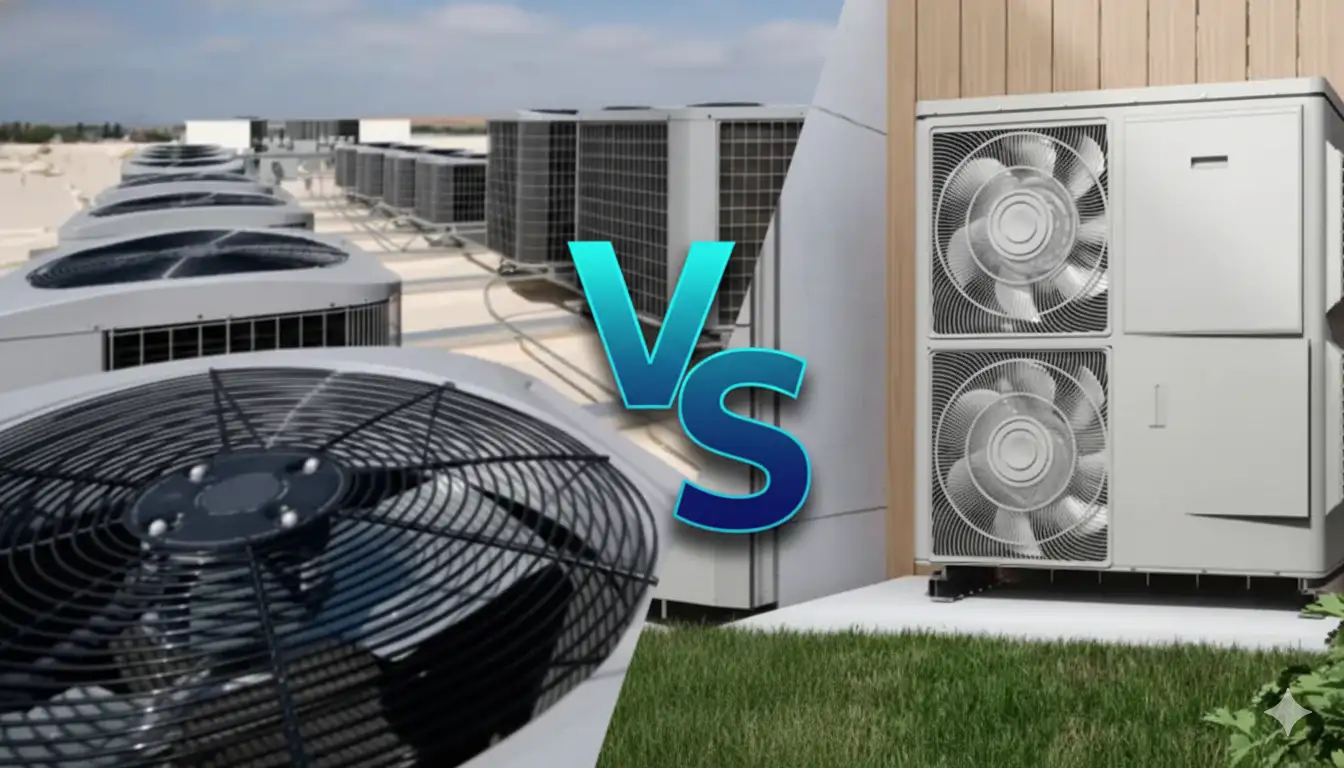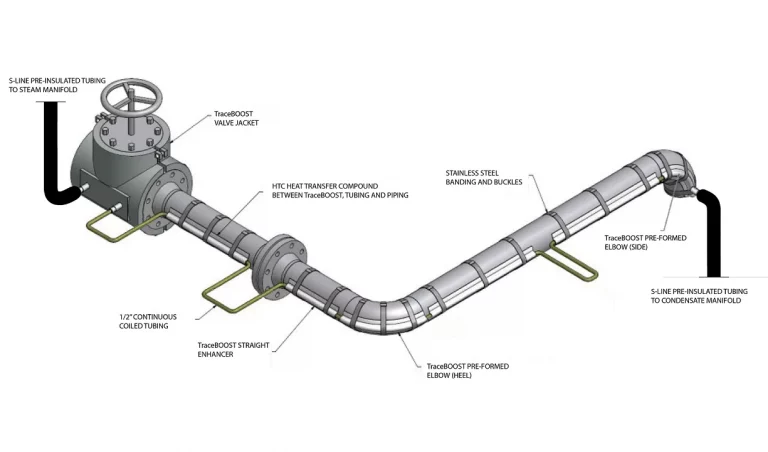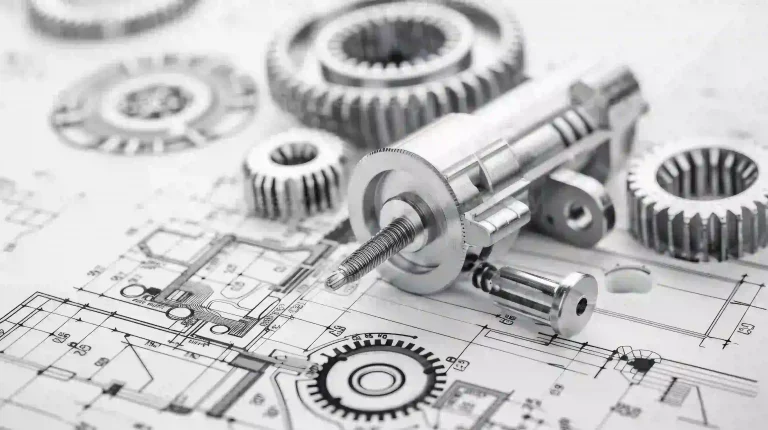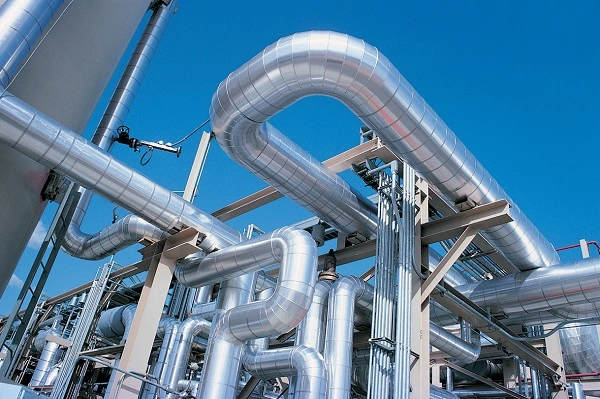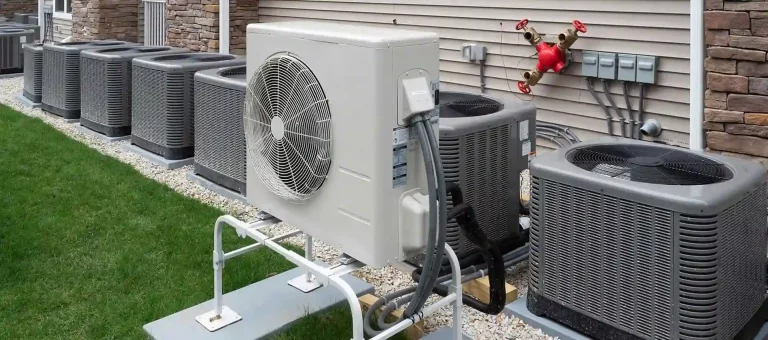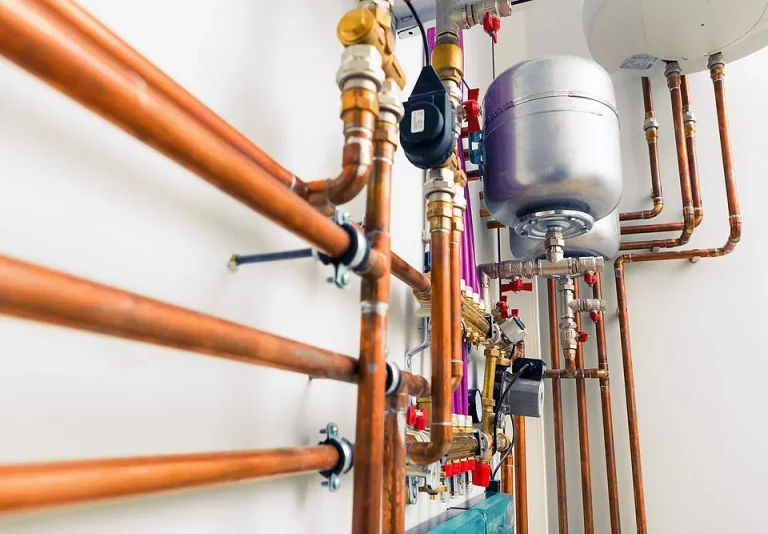Heat Pump vs HVAC: What’s the Difference and Which is Better?
Are you confused between a Heat Pump vs HVAC? We are here to help you! Choosing between a Heat Pump and HVAC is not as easy as it sounds. It is essential to point out that not more than often these two systems are considered the same. Well, to clear the air, they are completely different from one another in various ways. So, if you are about to embark on a journey to choose a system for your home, then you are at the right place.
In this article, we will be discussing key differences between heat pumps and HVAC systems, and which is the right one for you! But first, let’s have a short introduction about both of them separately.
A Brief Explanation about Heat Pumps
A heat pump is a highly efficient system designed to handle both heating and cooling needs. To produce a desirable atmosphere, this system transfers heat from one space to another.
In a hot climate, it will transfer heat from your home to the outside. Similarly, in a cold weather, it will take the heat from the outside and bring it in.
The latest heat pumps also come with inverter-driven compressors and cold-climate applications that deliver robust performance even below the freezing point, something that aged versions failed to do.
To explore the different types of heat pumps and how each one functions, check out our detailed guide.
Heating, Ventilation & Air Conditioning – A Quick Overview
A basic term that comprises three different systems. Collectively, these systems manage and control the indoor air and its quality.
- With HVAC, the heating requirements of a space are met by a furnace
- For cooling, HVAC system uses a centralized air conditioner
- Ventilation in HVAC is done by a network of ductwork and filters. This network is responsible for air circulation and quality control.
Latest HVAC systems integrate smart thermostats and zoned temperature control, offering better energy savings and indoor air quality management.
Heat Pump and HVAC – Key Distinctions
The following discussion aims to provide you with the key Differences Between Heat Pump and HVAC. So, let’s explore the key variations between the two:
1) Operational Variation
This basic variation drastically influences how much energy is being used and the environmental impact.
- The working mechanism of a heat pump is moving heat using a refrigerant line. It comes in three types:
- Air Source
- Ground Source
- Water Source
- An HVAC system, heat is generated by using electrical resistance, fuel, natural gas, oil, etc. And this is why the difference lies, as an HVAC is not considered a sustainable choice when compared to a heat pump.
2) Financial Budget
To get a comprehensive understanding of a system’s financial matters, hiring professional HVAC Estimating Services is the right way to go. If you are wondering why, then there are multiple reasons. But the most important one is that they will cover everything from initial planning to final installation and testing of a system.
Thus, the financial difference in terms of a system’s costs is explained in the section below:
- Going with a heat pump, keep in mind that their upfront cost is higher because of its advanced system. The price for a heat pump starts from $8700 and can go up to $26000 or even more depending on what type of heat pump you want.
- In contrast, an HVAC system’s initial cost is comparatively much lower, starting from $5500 and can go up to $17000.
The main difference lies in the long term benefits. With a heat pump, you will get exceptional energy efficiency which you cannot get with an HVAC system.
For large-scale projects, getting professional insights from commercial Piping Estimating Services can help determine the total material and installation costs, especially for systems that require extensive duct or piping networks.
3) Efficiency Measuring Scale
It is important to know how the efficiency of a heat pump and HVAC is measured. This efficiency scale will tell how proficiently a system is working. Note that the more efficient a system is, less energy will be wasted.
For Heat Pump
- In a heat pump, the Heating Seasonal Performance Factor (HSPF2) of 8 to 10 indicates an efficient system.
- For cooling, Seasonal Energy Efficiency Ratio (SEER2) scale of 15 to 20 represents optimal performance efficiency
For HVAC Systems
- HVAC uses Annual Fuel Utilization Efficiency (AFUE) which lies between 80 to 90% for furnaces.
- The usual range for air conditioners is 13 to 16 which is also measured by SEER2.
4) Better Air Quality
Here’s how these two differ when it comes to better air quality:
- A Heat pump is a much safer and cleaner choice when it comes to indoor air quality.
- Whereas HVAC is based on combustion, which includes burning or fuel to produce the required heat.
Although both systems are efficient in this regard, heat pumps may be better because of excluded combustion.
How to Find the Perfect Fit?
If you are still unclear on which system is right for your space, than the following discussion will help you in making a smart decision:
- Climate: For cold regions (below 20°F regularly), a high-efficiency dual-fuel HVAC system may perform better. For moderate climates, a heat pump is ideal year-round.
- Energy Efficiency: Heat pumps are the greener choice if sustainability matters.
- Budget: Compare total cost of ownership, not just installation price.
- Home Insulation: Proper insulation and ductwork design drastically affect system performance.
Hybrid systems combining heat pumps and gas furnaces are trending among homeowners seeking flexibility and lower utility bills.
Previously, air-source heat pumps were discouraged in very cold climates, but with modern variable-speed models, this limitation is now outdated.
End Note
Still confused about what to select between a Heat Pump vs HVAC? Well, we have provided you with a detailed discussion about some of the major differences between these two systems. By going through this article, you can decide what system is the best option for you. Apart from that, although it is a necessity to know what a particular system is capable of, it is also important to evaluate what your home needs.

